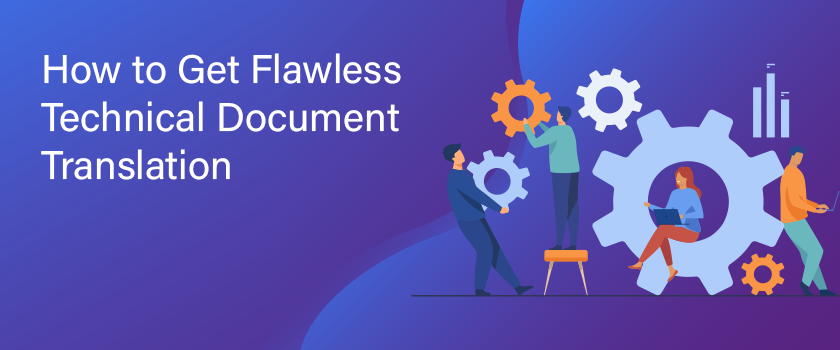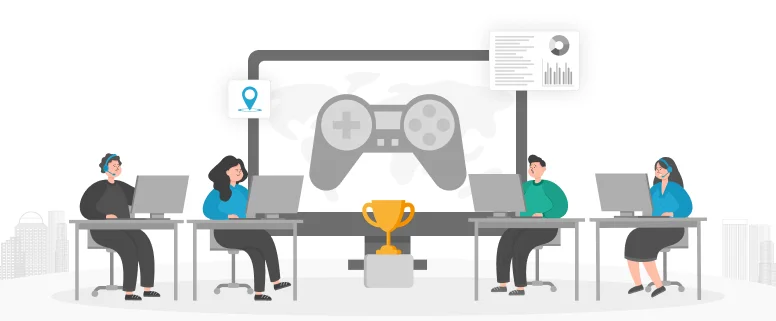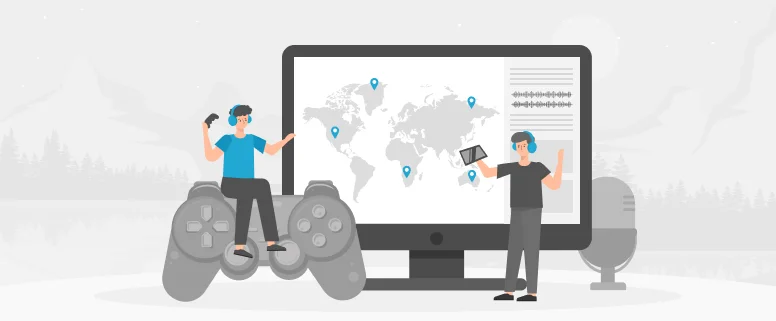A lot of work is being done on innovations and technological advancement to make the life of people easy. People are attracted to products from alluring advertisements, but when they buy the product, they read a technical document to know how to use the product and how to keep oneself safe while using the product. What if that product manual is in a foreign language? Would you be able to understand it?
The global companies require a technical translation when they buy machines or certain hazardous material for producing any product or instrument. They need to make internal technical documents for worker’s safety and external documents for consumer’s safety. Some countries are more advanced in technology than others. For example, Japan and Germany are producing many innovative products. Many people from developing countries go to these countries to earn their bread and butter. So to communicate the technicalities of the work with a diverse workforce and to sell products globally, companies require technical translation. Flawless Technical document translation ensures the safety of the workers and consumers both. Otherwise, it can result in lawsuits and cause danger to human life.
The Skills of Technical Document Translator
Technical translation is not about proficiency in foreign languages, but it requires technical knowledge about the subject you are dealing with. Let’s have a look at the qualities of a technical translator. The translator with the required technical knowledge, skills, and attitude can provide you with flawless technical document translation.
Knowhow of Subject Area
The technical texts are usually related to specific subject areas, so technical translators should have the required knowledge and understanding of the subject that needs to be translated. To know the subject well, they should integrate the technical concepts to make a logical relationship.
Understanding of Technical Terminology
A competent technical translator should always know the new technological innovations and their terminologies. If they are unaware of it, then they need to research to stay updated. For this, they can use specialized texts and need to integrate the new terminologies with the subject.
Native Speaker
In a technical translation, word to word translation of the document is not enough. Localization is required in the translation because localized content will be understood by the intended market. If your technical translated document is according to the cultural and regional nuances, then you will have a competitive advantage in the market and you will be able to enhance the company image and develop brand loyalty among the masses.
How Technical Translators Can Produce Flawless Technical Document Translation
Let’s have a look at how to get flawless technical document translation.
Keep Technical Translation Simple
Technical writing is complicated, but a translator’s job is to make it simpler by making short sentences. The translator should avoid idiomatic expressions and dependent clauses to avoid misinterpretation. Abstractions and idioms can get easily misinterpreted because it often contains cultural norms. The technical translation needs to be done literally, but make sure that the original meaning is not lost in translation. Accuracy and quality of technical translation depend upon original technical content, so the company should prepare its content according to the guidelines of technical writing.
Take Care of Cultural Nuances
Technical documents are also influenced by cultural nuances. Every country has a different culture that is depicted in its way of life and consumer behavior. We cannot learn about the cultures of different countries, so the solution to this problem is to hire a native technical translator. The advantage of a native technical translator is that they are not only bi-lingual but they are also bi-cultural and have competencies in technical document translation.
Keep Localization in Consideration
The world is full of different religions and cultures. To get into any foreign market, it is important to take care of cultural intricacies. Localization helps in this regard. It helps in resonating the technical translation with the locale and region of the country. Localization is about taking care of layouts, units of measurement, currencies, and dates as per the culture of the region. A high-quality technical translation shows that the text is written for a specific target audience. Localization in translation provides nuanced translation that is accepted by the target audience.
Following the Right Format
All the technical documents don’t support pagination and formatting. CSS and HTML are very responsive layouts but when you import PDFs all the original formatting is changed. So it is recommended to send the source file to a technical translator. It will save their time which they spend on conversion and text extractions. You should provide a clean post-translation document to translators so that they spend time on providing impeccable technical document translation.
Automation
If you are repeatedly using references, tables of content, and indices, automate them so that translators can prioritize their tasks. Different software can be used for formatting in different languages. If you use Maker Interchange Formats, it will preserve the document without separating the translation. It helps in developing consistency among translated documents. The two applications DITA or XML keep formatting rules different. It also demands upon commands that shape your content. Automation further helps in technical translation in the following ways:
1. Font changing according to different languages
2. Adjustment of indents because of language expansion
3. Changing your prefix text.
Wrapping Up
Technical document translation requires regular updation because technology is evolving with new advancements. Besides, the team of native translators, reliable translation companies also use state of the art software to sustain the quality and volume of technical document translation. CCJK is a translation company that has a team of native technical translators who are subject matter experts in their fields and provides flawless technical document translation using state of the art technology in fast turnaround time and economical rates.







